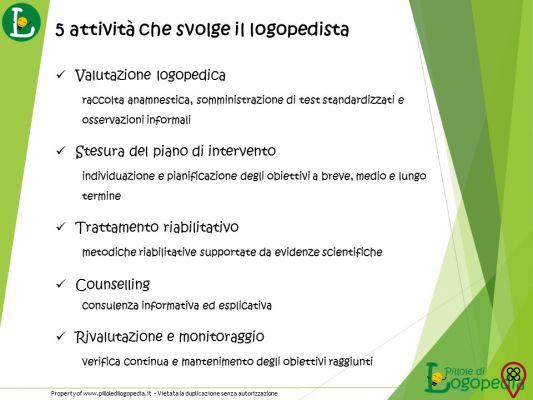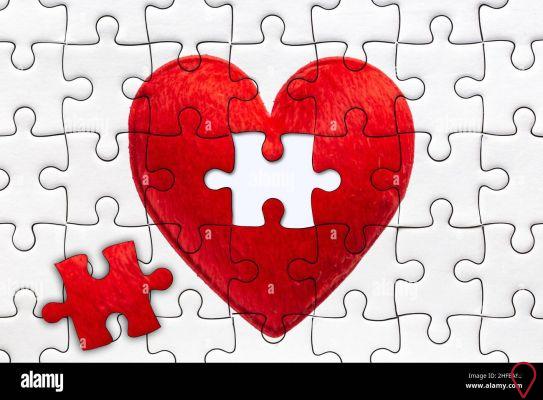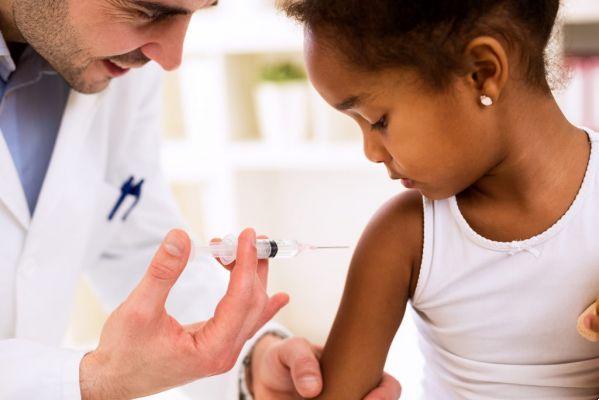Adepression is considered the evil of the century. It is one of the diseases that most alienate employees. This mental disorder affects 350 million people worldwide, according to the World Health Organization (WHO).
In Spanish lands, one in ten has the disorder. Unemployment, family and affective problems and loss of a loved one are gateways to the disorder. However, high levels of cortisol is another factor linked to depression.
Controlling stress is one of the functions of this hormone produced by the adrenal glands, located above the kidneys. Cortisol is linked to serotonin, a hormone responsible for well-being. According to research done at the University of Cambridge (Great Britain), adolescents with a high concentration of cortisol are fourteen times more likely to develop the problem.
For the diagnosis to be confirmed, the presence of five symptoms daily for two weeks is necessary. Treatment involves therapy and medication in the most severe cases. Changes in habits such as quitting smoking, drinking, adopting a healthy diet and practicing physical activity are also part of the list of therapeutic procedures.
whole body disease
A depression affects the whole body. Psychiatrist Rodrigo Leite, the disorder affects the immune system, alters the heartbeat and causes the accumulation of fat in the blood. Young depressed women are fourteen times more likely to develop heart problems, according to a study by Emory Medical University and published in the Archives of General Psychiatry in 2011.
Depression x biological clock
The US National Academy of Sciences found that the disorder alters the circadian cycle (or biological clock). The cycle controls sleep, mood, digestion and appetite. In depressed people, the biological clock works in reverse: during the day, the body works as if it were night and vice versa. The researchers studied 55 healthy brains and 34 brains from depressed people. The organs were donated shortly after the patient's death. The study paved the way for the development of treatments.
Bad eating habits
Wrong food also contributes. Consuming fast food, sugar and soda increases the risk of having depression. A diet rich in vegetables, legumes, fish, nuts and chestnuts reduces the chance of having the disorder by up to 30%. This group of foods are sources of vitamin B, folic acid and zinc, substances that improve brain health.
depression and stroke
Who had and correctly treated the depression you have a higher risk of having a cerebrovascular accident (CVA). Researchers at Harvard University monitored 16 adults over the age of 50 for nine years. Volunteers answered questionnaires about clinical history, including depressive symptoms. At the end of the survey, those who reported three symptoms of the disorder four years in a row were 114% more likely to have a stroke. The relationship between depression and stroke is still unclear, but researchers believe that smoking, alcoholism and a sedentary lifestyle – common in depressed individuals – are explanations for this link.
Baby blues
Some women feel sad and angry three days after giving birth. Symptoms last from one week to fifteen days and disappear spontaneously. THE depression postpartum begins four weeks later and the mother is unable to carry out daily activities. The precipitous drop in estrogen and progesterone after childbirth is one of the explanations. history of depression, unplanned or unwanted pregnancies are also related to the problem. The woman does not feel able to take care of the baby, has changes in appetite and sleep, has panic attacks and does not worry about resuming her professional position at the end of maternity leave.
The diagnosis can be made even during pregnancy through a blood test. Researchers at the Johns Hopkins hospital (United States) claim to have discovered changes in two genes that tell whether a woman will develop the disorder after childbirth. the treatment of depression postpartum includes therapy and medication. There are medicines that pass less substances into breast milk. Doctors recommend not offering milk after taking the medication, due to the higher concentration of components.
It is important to differentiate depression postpartum and puerperal psychosis. This is more rare and its onset occurs in the first week after birth. In psychosis, there is a loss of reality, the woman hears voices, has delusions and believes she has super powers, to the point of throwing herself out of the window with the child. Infanticide (murder of children) occurs in 4% of puerperal psychosis cases.
childhood depression
In children, the disorder appears from the age of 4 years. The number of cases among children and adolescents is growing worldwide. In Spain, it is estimated that 1 to 3% of people between 0 and 17 years old suffer from the problem. Death of a loved one, bullying and mental, physical and psychological violence are triggers for depression childish. However, the various extracurricular activities and the indiscriminate use of electronic devices are also contributing factors.
Children of depressed parents are five times more likely. Carriers of Attention Deficit Hyperactivity Disorder (ADHD) is another element of risk for the little ones. Research carried out by Hospital das Clínicas (SP) in 2012 attest that 50% of children with ADHD will have at least one depressive condition in their lives. Treatment up to the age of 9 is exclusively therapy. After this age, medications are allowed.
See the most common symptoms of depression in children:
- Anxiety
- Drop in school performance
- Loss of interest in going to school and playing with friends
- feeling of rejection
- Stomach, headache, or leg pain
- Destructive and antisocial attitudes
- Not controlling urine and feces
A depression It is one of the most well-known mental disorders. It is not just restricted to psychology Despite being much discussed, there is little knowledge. Several myths surround the problem and prejudice patients. We will clarify one by one and help clarify your doubts.

1. Sadness is not synonymous with depression
Although sadness is one of the symptoms, it is not always present. The scene of the depressive person who cries 24 hours and lives in regret is not unanimous. Family and friends of actor Robin Williams, who was depressed and died in 2014, reported that they never saw him sad. In some cases, the patient may have tantrums and constant bad moods. Each case is unique and must be investigated individually.
2. You can go to the general practitioner
In this lack of knowledge, many people are unaware that they can look for a general practitioner. The specialist will analyze the symptoms and refer you to a psychologist or psychiatrist. Seek medical advice as soon as you notice signs of depression facilitates or treatment.
3. Male depression
Hormonal issues made women more prone to the problem. Several studies pointed to the ratio of two women with depression to one depressed man. Men also suffer, however, the depression masculine is ignored for cultural reasons. There is still a belief that men cannot show frailty or weakness. Check out the most common signs of depressed men:
- Fatigue
- Erectile dysfunction
- Back or stomach pain
- Difficulty concentrating
- Indecision
- Use of legal or illegal drugs
- Anxiety
- Irritability, anger or hostility
- Suicidal thoughts
4. It's not just for the elderly
Hormonal changes in menopause is a risk factor. The loneliness felt by the elderly is another element that triggers the depression. However, young people can also suffer from the disorder. Genetic predisposition, difficulties in relationships, contact with drugs are factors that leave people of all ages exposed to this serious problem.
5. Symptoms of depression don't always mean depression
Changes in sleep or eating are common traits. But they are not always signs of depression. Anxiety before a test or selection process, sadness due to the end of a relationship cause such symptoms. Thyroid problems can also trigger these problems.
To confirm the diagnosis, the individual must have at least five of the following symptoms for two weeks: discouragement, sadness, negative thoughts, changes in sleep or appetite, fatigue, difficulty concentrating, and loss of interest in life.
6. Bad moods and constant complaining are not personality traits
There are people who complain about everything. There are those who don't care and say "don't care, he's just like that". However, bad mood and constant complaints cannot be seen as unimportant factors. We call this condition dysthymia. This kind of depression It is characterized by low self-esteem, self-deprecating comments, and an appreciation of negativity. If you have the symptoms, or know someone with these signs, know that psychological guidance is essential for the correct treatment.
7. Early menstruation and depression
Girls who menstruate before age 12 are more likely to experience depression during adolescence. According to studies from the Universities of Bristol and Cambridge (both in England), the biological, cognitive and social changes that occur at puberty cause conflicts with parents and in relation to their own bodies. If the girl who menstruates at 12 is not prepared to face so many conflicts, what can a 9-year-old girl say. This lack of preparation leads the girls to isolate themselves, as they feel that they are too distant from their friends.
8. Drug treatment takes time
Medicines do not take effect overnight, nor do they bring happiness, they only treat the symptoms. The doctor constantly evaluates the evolution of the treatment. Drug treatment is successful in most cases. Still, side effects are not uncommon. Symptoms need to be investigated and in some cases, the professional chooses to change the medication. The most common reactions are:
- Dry mouth
- Nausea
- Drowsiness or insomnia
- Headache
- blurred vision
- Fatigue
- Tremors
- urinary problems
- Cold
- Decreased sexual appetite
9. Relapses
They are common. Approximately 80% of patients will experience four episodes of the disorder in their lifetime. In the first year of treatment, 1/3 of patients develop a new condition. depression. However, relapses do not indicate that the individual will take medication for life. Treatment is monitored and the doctor will decrease the dosage as progresses.
Genetic predisposition, internal conflicts, hormonal dysfunctions, poor diet, family and financial problems are the best known causes. Treatment involves therapy and medication. The evil of the century has many facets. Some can't get out of bed, others get super irritated.
Symptoms vary a lot, but the truth is that the depression it is the cry of the soul. Prejudice around illness and patients makes the situation even more difficult. Women who have just given birth are accused of being lax mothers. Men see their masculinity put to the test, because, after all, "men don't cry". Children increasingly overloaded with activities, imposed by the vanity of parents, destabilize the little ones.
The subject is discussed, however, many people do not have knowledge. Ignorance maintains the myths and prejudices about this disorder. Common sense further complicates the already emotionally shaken patient who is ashamed of his condition. Relatives and friends can and should seek information on websites specialized in psychology, in order to inform their loved ones about the importance of seeking medical help.
With therapy, the patient learns to recognize their problems, deal with them, and, above all, visualize their qualities and return to live with quality of life. Medications control feelings and are gradually withdrawn. It is necessary to emphasize that the individual who has had a depressive episode must always be alert, just like the person with any disease.
A depression it is a modern evil. Everyday pressures can make us succumb. However, he is not greater than anyone else. The disorder can be overcome with proper treatment, adoption of healthy habits (eating, physical exercise, quitting drinking and smoking), knowledge generation about the problem and lots of love. With this union of factors, the patient is strengthened and reborn to a full life.
Want to make an online consultation?
Are you looking for professional help? Find psychologists online at Terapize!

























